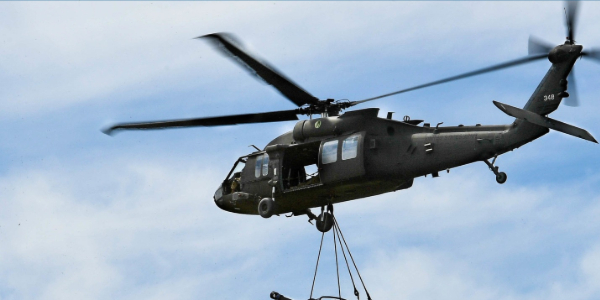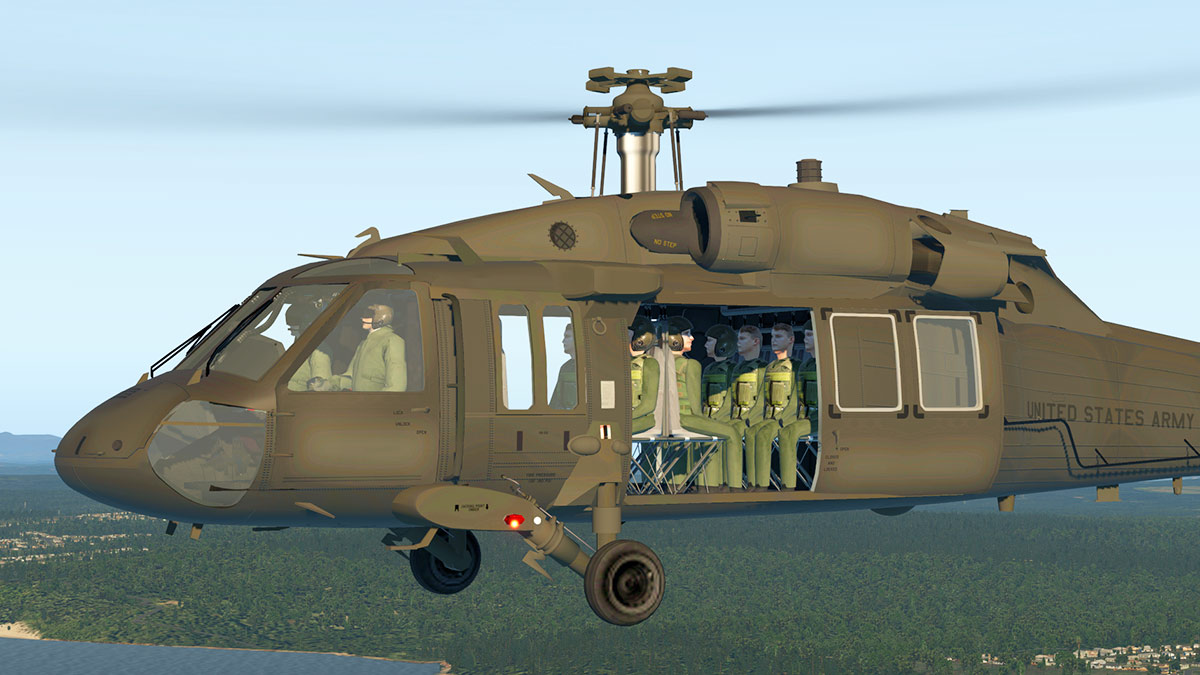UH 60 Black Hawk Helicopter Versions and Their Uses
UH 60 Black Hawk Helicopter Versions and Their Uses
Blog Article
The Influence of Lasting Practices on the Future of Aircraft Procedures and Emissions Decrease
As the air travel sector encounters boosting analysis over its ecological effect, the fostering of lasting techniques becomes an essential path towards future airplane operations and discharges reduction. Advancements in lasting aeronautics fuels and innovations in crossbreed propulsion innovations stand at the leading edge of this makeover, appealing considerable decreases in greenhouse gas emissions. The successful assimilation of these efforts pivots on a range of factors, including regulatory structures and sector partnership. The concern stays: how will these developing methods reshape the dynamics of air traveling and add to a much more sustainable future?

Summary of Lasting Practices
Sustainable methods in airplane operations include a variety of techniques intended at lowering ecological effect while preserving operational effectiveness. These techniques are crucial in the aviation industry's commitment to decreasing its carbon footprint and adhering to worldwide environmental requirements. Trick initiatives consist of maximizing flight paths to lower gas consumption, boosting upkeep protocols to make certain airplane run at peak performance, and executing sophisticated technologies such as winglets and lightweight products that boost the rules of aerodynamics.

Training and involving staff on sustainability techniques likewise play a vital function, cultivating a culture of ecological obligation within companies. Overall, the combination of these sustainable methods not only helps in reducing exhausts but likewise boosts the lasting practicality of the air travel market, ensuring it meets the needs of both consumers and regulatory bodies while adding to international sustainability objectives.
Innovative Fuel Alternatives
Numerous cutting-edge gas alternatives are becoming pivotal remedies to lower the aviation industry's dependence on conventional fossil gas. Amongst these alternatives, Lasting Aviation Fuels (SAFs) have acquired considerable attention due to their prospective to reduce lifecycle greenhouse gas discharges by as much as 80% contrasted to standard jet gas. SAFs are derived from different feedstocks, consisting of waste oils, farming residues, and also algae, making them a functional option for the industry.
An additional appealing option is hydrogen gas, which, when utilized in gas cells, creates just water vapor as a result. This zero-emission potential presents a significant opportunity for decarbonizing flight procedures, especially for short-haul trips and regional airplane. In addition, electrical propulsion systems are being checked out, leveraging battery innovation to power airplane. While current battery capacity limitations variety and payload, continuous advancements may soon render electric trips sensible for details applications - uh 60.
Finally, biofuels stemmed from biomass are being checked out, offering an eco-friendly choice that can be combined with traditional gas. Collectively, these cutting-edge fuel choices stand for an essential action toward attaining a sustainable aviation community, straightening with global exhausts decrease targets and enhancing the market's environmental stewardship.
Technological Innovations in Air Travel

How can technological advancements reshape the future of air travel? Advancements such as electric and hybrid propulsion systems are at the forefront, encouraging significant reductions in gas intake and greenhouse gas discharges.
Moreover, the execution of innovative products, such as light-weight composites, adds to enhanced the rules of aerodynamics and fuel effectiveness. Using fabricated intelligence and artificial intelligence in trip procedures optimizes course planning and decreases gas shed by making it possible for real-time modifications based upon weather condition and website traffic problems. Additionally, the advancement of independent and remotely piloted airplane systems stands to transform freight and guest transportation, possibly raising performance while decreasing human error.
Moreover, sustainable aeronautics technologies, including sophisticated air traffic administration systems, can minimize and simplify procedures blockage, resulting in lower discharges during flight. These advancements collectively stand for a paradigm shift in air travel, guaranteeing a future where sustainability and functional effectiveness are linked, thus sustaining the sector's dedication to decreasing its ecological effect.

Regulatory Structure and Conformity
Due to the growing focus on ecological stewardship within the aviation industry, the governing structure regulating aircraft procedures is advancing to promote sustainable techniques. Regulatory bodies, such as the International Civil Aviation Organization (ICAO) and various nationwide aeronautics authorities, are presenting rigorous guidelines focused on decreasing emissions and enhancing operational efficiency.
These guidelines typically include the fostering of Sustainable Aviation Gas (SAF), which has actually been identified as a crucial component in achieving reduced carbon impacts. Additionally, conformity with these regulations calls for airline companies to execute sophisticated technologies and operational methods, such as maximized flight courses and enhanced air traffic administration, to decrease gas intake.
Furthermore, the enforcement of emissions trading systems and carbon countering efforts is coming to be progressively prevalent, compelling airlines to keep track of and report their exhausts precisely. Non-compliance can cause significant charges, therefore pushing operators to focus on sustainability in their company versions.
Eventually, the evolving regulatory landscape not only drives technology and investment in eco-friendly innovations however likewise fosters a culture of accountability within the air travel industry. As these frameworks proceed to create, the concentrate on lasting techniques will be important to accomplishing the market's long-lasting ecological goals.
Future Patterns in Aircraft Operations
As the aeronautics market adapts to a significantly rigorous regulative atmosphere, future trends in airplane operations are established to concentrate on innovative remedies that additionally improve sustainability and efficiency - uh 60. Key growths will likely consist of the adoption of innovative air web traffic administration systems, which use real-time information click here to read and fabricated see this knowledge to maximize trip courses, lowering fuel usage and emissions
Another substantial pattern is the boosted integration of sustainable aeronautics gas (SAFs) These alternatives to standard jet fuel, stemmed from eco-friendly sources, can considerably lower lifecycle greenhouse gas discharges. The market's dedication to SAFs will likely accelerate as airline companies team up with gas producers to make certain availability and cost-effectiveness.
Additionally, the push in the direction of electrification and hybrid propulsion systems is obtaining momentum. Arising airplane styles will incorporate these technologies, using quieter and more effective operations, specifically for short-haul flights.
Verdict
To conclude, the assimilation of lasting techniques in aircraft procedures holds substantial possibility for discharges reduction and improved efficiency. The adoption of sustainable air travel fuels, combined with innovations in electric and hybrid propulsion systems, is essential for lessening lifecycle greenhouse gas exhausts. Enhancing flight paths and embracing ingenious modern technologies contribute to a quieter and much more eco friendly aviation industry. Collectively, these initiatives straighten with international sustainability goals and pave the way for a greener future in aviation.
Developments in lasting aviation fuels and advancements in hybrid propulsion innovations stand at the leading edge of this makeover, promising considerable decreases in greenhouse gas discharges.Many ingenious fuel choices are arising as essential services to minimize the aeronautics sector's dependence on typical fossil fuels - uh 60. Amongst these alternatives, Sustainable Air travel Fuels (SAFs) have actually gotten considerable focus due to their potential to reduce lifecycle greenhouse gas exhausts by up to 80% contrasted to conventional jet fuels.One more substantial pattern is the boosted combination of lasting air travel gas (SAFs) The adoption of sustainable air he said travel fuels, coupled with innovations in electrical and hybrid propulsion systems, is important for reducing lifecycle greenhouse gas discharges
Report this page